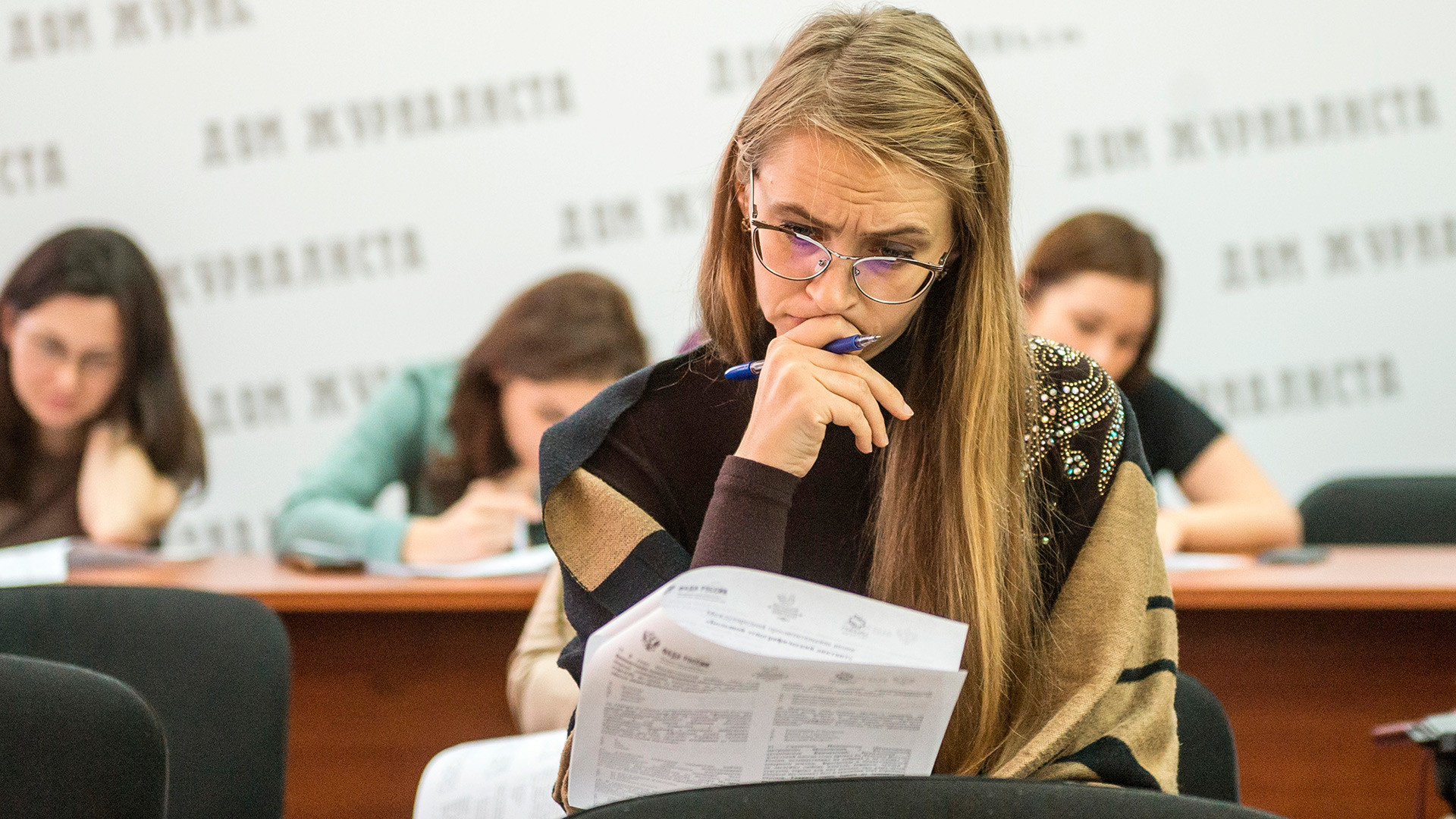7 tips on how to start teaching your language in Russia

Apply for a government grant
If you are a student learning Russian, you can apply for a government grant that will allow you to combine Russian language classes with trying out as a native language teacher. This will help you support your stay and get some initial experience, as it did for Francesca Loche from Cagliari, Italy who has lived in Moscow for eight years now. She first visited Russia as a Russian linguistics student and eventually decided to move here after graduating from university in Italy.
“As soon as I got back I started teaching, but I had no experience and no diplomas. I was told that native speakers are in demand and it’s a good way to earn extra income, so I decided to try. At first I gave private lessons, then I taught at schools and with time got enough experience to apply for a teaching position at the Higher School of Economics,” Francesca said.

Francesca Loche, Professor at the Higher School of Economics, from Cagliari, Italy, lives in Moscow since 2010.
Francesca LocheExperience during student internship in Russia also helped another expat – Shingo Ohata, a 33 year old that now has his own school of Japanese language in Russia. Born in Tokyo, he stayed in Russia a few times thanks to a government grant.
“When I visited Moscow for my student internship I taught Japanese in a few language schools and it was my main occupation at that point," he said. "When I studied in Moscow I attended lectures together with Russian students so I helped them learn Japanese. I studied linguistics and it helped me a lot in teaching.”
Find a job online
If you are a graduate professional considering a job in Russia, the easy way is to search for it online, says Virginia Robinson from Alabama, U.S. who has worked in Moscow since 2014. She now works as a Science and History teacher at an elementary school, but it all started with an online application that secured her a 10 month contract with EF international education company.
“I was working as a receptionist after quitting my teaching job with a public school and I had plenty of time to research different opportunities and a board advertising ESL jobs came up,” she told Russia Beyond. “As a student, I had fallen in love with Dostoyevsky’s work and dreamed of learning Russian, so I decided that this was my chance. It was shockingly easy to get a job as an English teacher — just apply online, interview via Skype, and here’s your invite!”

Learn a bit of Russian and the theory of teaching
“A good piece of advice is to learn some basic Russian before coming. It will be of great help,” notes Luis Yanguas Santos, a Spanish teacher at Instituto Cervantes in Moscow since 2009. And this is a point that many expat teachers agree on, even if you present yourself as a purely native speaker teacher. It will help not only in your daily life but also at work, as you’ll be able to explain the peculiarities of your language more efficiently to your Russian students.
If you have a professional background in teaching, translation or linguistics, that’s a big plus, says Francesca. “Being a native speaker and a teacher are two different things. You never even think about the difficulties of your native language because everything seems clear to you. But knowledge of Russian helps a lot because I can foresee the typical mistakes that Russian students will make. I had experience in Russian-Italian translation so it also helps me to explain difficult grammar aspects comparing one language to another,” she says.
“My masters’ major was comparative and cognitive linguistics so it wasn’t hard for me to understand the theory of teaching,” Shingo shares. “The hardest thing was to conduct the classes, to be able to adapt to the needs and interests of every particular student. Every time one has to come up with new ways to explain a particular thing to a person so that he or she understands it clearly.”
Don’t worry about finding students
Russia is a great place for an English teacher, Virginia believes. According to her experience, here the supply-demand is on your side: “There are significantly more people who are looking for native-speaking teachers than there are native speakers here; and because native-speaking teachers are rare and in demand, they can command a high price for their lessons. I’d say a normal rate for a freelancer is anywhere from 2,000 to 4,000 rubles ($35-70) per hour, with prices higher for specialized lessons or lessons where you travel to someone’s home.”
She also argues that once you get established as a teacher, the students will find you and it will give you an opportunity to decide how much work you’ll do.
Other languages like Spanish and Italian are also popular right now. As Francesca explains, “some go to Italy for a vacation every year, some people have a business there, while others want to study or move there.” The same applies to Spanish, which leads to a high demand. Yet, of course, due to the ruble collapse of 2014 Russians became more reluctant to spend big sums on long-term courses, says Luis. So now they usually opt for individual classes at cafes or at home.

Be aware of cultural differences
Naturally, teaching in another country you’ll notice some things that might strike you. For Francesca, it was difficult to adapt to the fact that Russian students prefer a teacher to be strict and demanding, while Luis saw that in comparison with students in Turkey (where he worked before) Russians tend to be more afraid of speaking out when they are not sure in their answer.
As for Russian children, they tend to work very hard and are often exhausted, says Virginia. On the other hand, “they are used to memorizing much more than Western students. If you give them short poems to learn, they will learn them. If you give them words to learn by heart, they will,” she says. “Because of socialization, boys are often permitted to be immature and lazy in a way that is not allowed for girls. Parents tend to obsess over their children to a larger extent than I was used to in the States, but that may be because of the economic bracket I’m working with.”
Be prepared to be on the cultural exchange frontline
As Shingo sees it, teaching your native language abroad is first and foremost about contributing to cultural exchange. “One has to understand that he or she stands in the frontline of cultural exchange because during classes with Russian students one has to explain many things about his or her country,” he points out. Answering questions will define the way Russian students see your country and a good or bad teacher will be able to either strengthen or lower the interest of students toward it.

Virginia Robinson (second from the left) on her journey on the Trans-Siberian Railway.
Virginia RobinsonBe sure you’ll never get bored
For those that haven’t been here, it is vital to be sure of their desire to teach in Russia. As Luis rightly claims, “coming to a place you have not visited before is a risk that not all people are ready to take.”
Therefore, it might be useful to visit the country as a tourist and see whether relocating to Russia for some time is really what you’d like to do. “I’ve seen many expats come and go,” says Virginia. “Some people thrive here and some people hate it. The biggest predictor of how you’ll feel about Russia is your comfort/boredom preference. Think about how important comfort is to you. Now think about how much you hate being bored. If you like comfort more than you hate boredom Russia is not for you. But if you hate being bored and a bit of chaos and unreasonableness won’t bother you, you’ll love it here. It’s not an easy place to live, but it’s never boring.”
Wondering how your life might change thanks to Russia? Check what other expats - like Tommy from Ireland and Lucia from Italy - have to say about it.
If using any of Russia Beyond's content, partly or in full, always provide an active hyperlink to the original material.
Subscribe
to our newsletter!
Get the week's best stories straight to your inbox